Arkansas carbon venture turns sustainable forestry management residuals into market-ready product
John Reese brings the boundless energy of a born salesman and a passion for every project he does. As general manager of EnviraPAC Monticello, his focus is on a business venture that superheats sustainable forestry management residuals to create a highly carbonized product called biochar.
The EnviraPAC Monticello project is unique in its large scale, variety of potential uses for biochar, and ability to create consistency in the quality of the biochar it produces. It is an industrially focused company that makes a renewably engineered biochar carbon powder to provide alternatives to fossil fuel-based carbon.
So, what exactly is this magic material? According to the International Biochar Institute, biochar is created by heating biomass with little or no oxygen to drive off volatile gasses, leaving carbon behind. The process creates a highly porous charcoal and can produce clean energy in the form of gas or oil. When used in farm applications, biochar can improve water quality by helping soils retain nutrients and water, and more nutrients stay in the soil.
One of the ‘Coolest Things Made in Arkansas’
Located in southern Arkansas, EnviraPAC draws on the forestry background of Monticello, using soft yellow pine residuals from local lumber production as the biomass for its pyrolysis process.
“We bring in the chips from the sawmill across the street and put it into our process,” Reese said. “We’re interested in a consistent, quality product. We’re not using recycled wood or construction waste that can contain contaminants.”
The wood chips are dried in a kiln and heated to over 600 degrees Celsius in a process called pyrolysis. Chemicals and gasses in the wood are volatilized, leaving hunks of bone-dry charcoal that contain over 90% carbon.
“We recycle our wood gas, so once we get our process up, it’s self-sustaining as long as we keep feeding it chips,” Reese said, adding that this “continuous process” of recycled energy is unique in the industry and got them named one of the “Exceptional 8 in the Coolest Things Made in Arkansas” contest in 2022.
It also helps to ensure the quality of the biochar they create. EnviraPAC’s biochar product is certified by the U.S. Department of Agriculture and International Biochar Institute and is listed with the Organic Materials Review Institute.
Once the biochar comes off the carbonizing unit, it can be packed as-is or ground into granules or fine powder. Reese says the smallest grind provides the most surface area and better strength properties for industrial use. While the larger chunks go to agricultural applications like fertilizer, powdered biochar has practical benefits in hydroponics, machinery, metallurgy, textiles, chemicals, plastics, pigments and coatings.
‘You Have to Have the Cake’
Reese has traveled extensively through Arkansas, spreading the gospel of biochar to farmers. Ag producers can get financial incentives for using biochar through a USDA-led program.
“Farmers need to know they can get subsidized,” he said. “I figured at least I can make sure the local people know it’s available, the conservation districts, crop advisors, anybody advising the producers.”
To make this advice even more timely, farmers who use those subsidies could get a boon as Congress considers a new Farm Bill and, with it, the inclusion of the Biochar Research Network Act. That bipartisan legislation would allow more funding for biochar research and applications.
Reese has also looked to Congress as he works to inform and educate—his mission extends from Arkansas farms to the U.S. House of Representatives. His Monticello plant has hosted Arkansas Rep. Bruce Westerman, the current chair of the House Committee on Natural Resources and a proponent of biochar. Reese said many officials didn’t even know there was a biochar plant in Monticello, and he was more than happy to inform them.
Reese says EnviraPAC is also using their sales team to break into markets with clients looking to replace fossil fuel/black carbon sources with sustainable products like biochar.
One recent market breakthrough is using powdered biochar in commercial and industrial paint. Reese said they experimented with using biochar as a black pigment replacement, but the formula “wasn’t black enough.” So, the sales team returned to their formulation data and noticed that biochar produced a flat or matte effect that could be desirable in certain coatings.
“It’s hard developing a market, technologies and applications for a new product. It may not work everywhere, but when it gets to the right place, something happens,” Reese said. “You need to pivot to the nook or cranny where you’re gonna be successful.”
He admits the endeavor isn’t entirely altruistic, as he’s in the business of making money. But it can be a winning investment. This venture is backed by Generate Capital, which focuses on sustainable infrastructure investments in renewable technologies to fight carbon emissions.
Decarbonization and climate initiatives are gaining steam. Government funding can help push emerging technologies forward. Couple that funding with entities like EnviraPAC that produce a consistent, quality-controlled product, and the possibilities are immense.
“We’re trying to be high-quality and compete against petroleum products where we can,” Reese said. “We want to make a long-term product. Subsidies are icing, but you have to have the cake–you can’t just live off icing.”

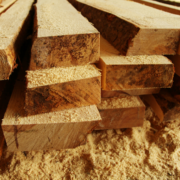
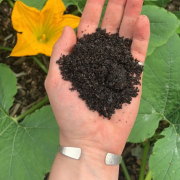 Courtesy Soil Cycle
Courtesy Soil Cycle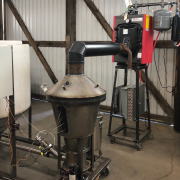
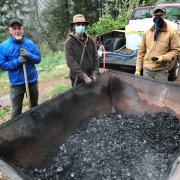 Courtesy
Courtesy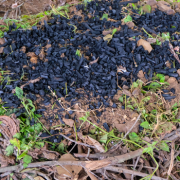
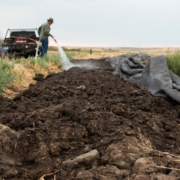
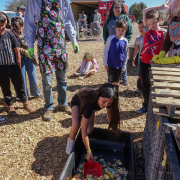 Courtesy Carol Ann Fugali
Courtesy Carol Ann Fugali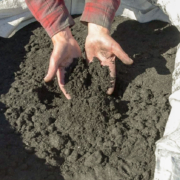
 Canva
Canva